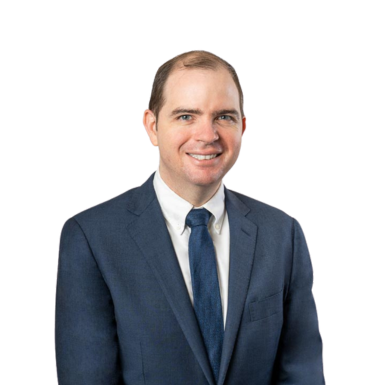In a recent decision, the Federal Court of Australia confirmed that health care practitioners alleged to have engaged in ‘inappropriate practice’ in providing 80 or more professional services on each of 20 or more days during a relevant period are burdened with the evidentiary onus of establishing that there was an absence of alternative medical services to meet the ‘exceptional circumstances’ exception.
The Federal Court has further used this opportunity to revisit the debate on when a health care practitioner can determine if an after-hours attendance is ‘urgent’ in the wake of the MBS Group A11 reform.
On 18 December 2018, the Federal Court of Australia handed down the decision to dismiss the appeal of Dr Manukharan Nithianantha, General Practitioner, who submitted that his breach of the 80/20 rule occurred by reason of ‘exceptional circumstances’. He was found by a Committee of the Professional Services Review to have provided 80 or more professional services on each of 20 or more days during the review period of 1 May 2013 to 30 April 2014, thereby engaging in ‘inappropriate practice’ pursuant to the Health Insurance Act 1973 (Cth).
The applicant contended that the Committee had failed to consider the practical question of whether the applicant’s patients could reasonably have obtained other medical services had they not been seen by the applicant, having regard to the remoteness of the Blackwater community, a mining town with a permanent population of 7,000 and approximately 2,000 additional fly-in mining workers, and the fact that only three other general practitioners practised at Blackwater on a limited basis. His submissions in this regard were advanced pursuant to section 82(1B) of the Health Insurance Act 1973 (Cth), which provides that a practitioner does not engage in inappropriate practice in rendering or initiating services on a particular day during the relevant period if a Committee could reasonably conclude that, on that day, exceptional circumstances existed that affected the rendering or initiating of the services. According to regulation 11 of the Health Insurance (Professional Services Review) Regulations 1999 (Cth), exceptional circumstances are an unusual occurrence causing an unusual level of need for professional attendances or an absence of other medical services for the patient, having regard to the location of the person’s practice and characteristics of the person’s patients.
As a matter of statutory interpretation, Justice Farrell observed that the intention of Parliament in enacting section 82(1A) of the Health Insurance Act 1973 (Cth) was to institute a prima facie position that a practitioner engages in inappropriate practice by rendering more than 80 professional attendances on more than 20 days. Affirming the prior Federal Court of Australia decision of Tisdall v Webber (2011) 193 FCR 260, Justice Farrell held that while there is no legal onus of proof in Committee proceedings, once a prescribed pattern of services has been found to exist, there is a practical or evidentiary onus on the health care practitioner to establish that there was an absence of alternative medical services for their patients in order to meet the exceptional circumstances test.
In this respect, Justice Farrell held that the applicant failed to adduce any objective evidence to permit a factual finding that there was an absence of alternative medical services for his patients. To this end, Her Honour favoured evidence adduced by the practice manager of another medical practice in Blackwater, which established that there were other medical practitioners available to attend on patients from 8.30am to 5.30pm Monday to Friday, and, indeed, after hours who could reasonably have attended on the applicant’s patients so as to avoid breach of the 80/20 rule, notwithstanding the rather compelling argument that these doctors were only conditionally registered.
The decision further clarified the test for billing of Medicare Benefit Schedule (MBS) Group A11 items, which relate to urgent attendances after hours. For MBS items relating to urgent treatment, a patient’s medical treatment will be held to be ‘urgent’ if treatment could not have been delayed until the start of the next in-hours period. In particular, the applicant contended that the Committee had the benefit of hindsight when concluding whether an attendance was urgent when citing an attendance on a child suffering from a ‘rash with mild fever’ who was subsequently diagnosed with ‘measles possibility’, requiring ‘homestay’. Although the patient’s mother was recorded to be in ‘a very anxious state’, this was insufficient to satisfy the Committee that the attendance was urgent.
Rejecting the applicant’s submissions, Justice Farrell held that a practitioner cannot determine definitively the urgency of an after-hours treatment until after a consultation has taken place. While it is true that the health care practitioner must, at the time he or she receives a call requesting an after-hours attendance, make the decision to provide the attendance on what is often limited information, this is not to say that an assessment after the consultation that the attendance did not meet the test of ‘urgency’ as required by Group A11 items is to go without remuneration. For example, this attendance may be billed as an alternative item number, such as a Group A22 item, which relate to after-hours attendances to which no other item applies. This decision reflects the recent reform to MBS urgent after-hours items, which came into force on 1 March 2018. The reform was driven by the MBS Review Taskforce noting an increase of 157 per cent in billing of urgent after-hours items between 2010-11 and 2016-17. The MBS Review Taskforce found that there was no clinical explanation for this dramatic increase, but rather that the growth was attributable to a corporate model of advertising based on at-home convenience, rather than urgent medical need.
While the 80/20 rule is one often giving rise to great contention, it is clear Parliament has relied on the position that the rule is based on the risk posed to patients by the provision of unreasonably high numbers of services. In light of this recent decision by the Federal Court of Australia, which demonstrates the increasing difficulty of meeting exceptions to a finding of inappropriate practice related to a breach of the 80/20 rule, health care practitioners should familiarise themselves with MBS requirements for billing so as to avoid any erroneous breach.
Meridian Lawyers assists health care practitioners in responding to investigations by the Professional Services Review (on referral from Medicare), including with respect to attendances at PSR Committee hearings, which examine whether a health care practitioner may have engaged in ‘inappropriate practice’ in connection with rendering or initiating services in that the conduct would be unacceptable to the general body of their peers as defined in the Health Insurance Act 1973 (Cth).
This article was written by Principal Daniel Davison and Senior Associate Sarah Twinn. Please contact us if you have any questions or would like more information.




 Meet our Team
Meet our Team View our Insights
View our Insights